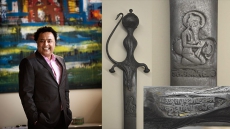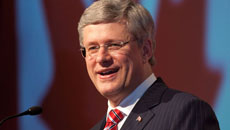New Delhi, Dec 11 (IANS) When Kailash Satyarthi was awarded the Nobel Prize nine years ago, he was often asked "What now?". It was, however, a seven-year-old Devli's question that made the social reformer keep going. "Why," asked Devli, "didn't you come sooner?"
Sathyarthi's consistent dedication to the cause of rescuing children from abuse, and his efforts spanning decades, are encapsulated in his book 'Why Didn’t You Come Sooner?' (Speaking Tiger).
The campaigner against child labour released his book in the Capital on Sunday, December 10, which is also observed as Human Rights Day. And it was also on December 10, 2014, when Satyarthi was awarded the Nobel Peace Prize.
The book contains 12 heart-tugging stories that speak of not just extremely dire conditions, but also of the resilience of children rescued from these circumstances and the hope they embody for freedom and a better future.
One story is about a third-generation child labourer who only upon being rescued, saw a banana for the very first time, and did not know that it had to be peeled before being eaten.
Titles such as "Why was I punished for God's mistake?', 'Can I take two rasgullas for Abbu, please?', 'Am I still a little child?' and 'Please save me, bhaiya ji' set the tone for some of the conscience-shaking narrations about children subjected to unimaginable forms of abuse, but were fortunate enough to be rescued and rehabilitated.
Several such children have grown up and built for themselves a respectable life of freedom and dignity.
The book and the discussion inspired by it have revealed that child abuse and slavery are practices that manage to survive due to the prevailing social order and the lack of a legal recourse to check it in early stages. The story of Kanhaiya Guruji is an example.
Kanhaiya, as a child, was forced to work as a labourer because his father could not repay the loan he had taken from a zamindar for his sister’s wedding. Kanhaiya was later rescued, rehabilitated, and now is a teacher.
Kanhaiya Guruji, along with Ram Kripa Guruji and Vijay, released the book with Satyarthi and literary figure and translator Rakhshanda Jalil.
Ram Kripa was rescued as a child from a quarry in Faridabad, Haryana, and Vijay was saved from a life consigned to a brick kiln in Sitamarhi, Bihar. Vijay later helped in the rescue of several more children working in inhuman conditions there.
In the course of the conversation around the book, Satyarthi pointed to a key component that makes rescues possible, and which lends hope for a better and secure future: compassion.
Quoting recent examples of minors rescued from abuse, Satyarthi narrated the tale of Ashraf, a domestic help enslaved at the home of a senior bureaucrat residing in the heart of the Capital.
Ashraf had succumbed to his temptation and drank two sips of leftover milk in the glass of his employer's child. His punishment was severe: his hands and feet were burnt.
It was a local watchman who tipped off a journalist, who, in turn, alerted Satyarthi's team and Ashraf was rescued.
Rakhshanda Jalil asked that the senior bureaucrat was expected to be neither illiterate, nor ignorant, morally, legally or educationally, so "how can compassion be taught?"
"See another's problem as your own and try to make it right without any expectations in return,” Satyarthi replied. "With compassion comes courage. That's why the watchman narrated the story to a journalist."
The crusader added: "Kindness puts the givers above the receivers, but compassion puts them at the same level, not one over the other."
Satyarthi has a vision for a system that will disallow any child to be enslaved or abused. He envisions an India where no child suffers abuse due to forced labour, trafficking, marriage, slavery, or any other means. He sees every child going to school.
Beginning with the grassroots, he suggests that villages nurture a child-centric democracy where they will be able to discuss their issues at school, so that their elders can address them seriously.
Such a practice will help instill the values of responsibility and accountability in individuals from a younger age, Satyarthi pointed out.
Lamenting that children are not a priority in development agendas, Sathyarthi said India is the best place to set the benchmark for a society where "every child should be free to be a child". And he was brimming over with hope and determination when he said: "I will see the end of child slavery in my lifetime."






